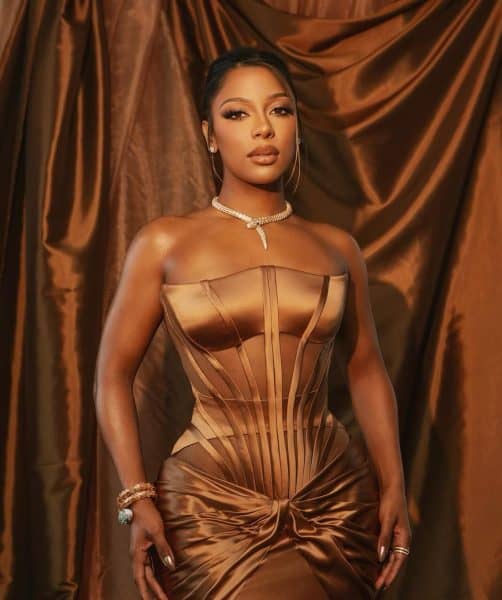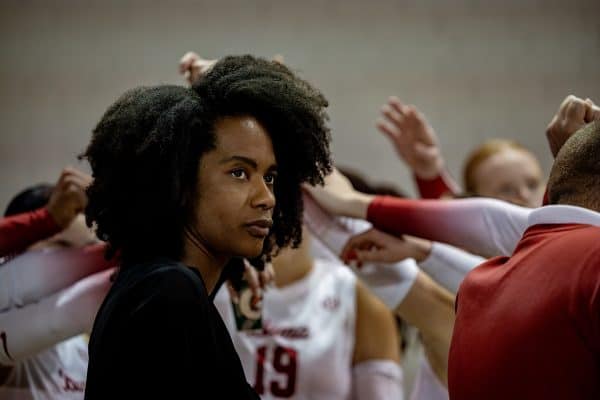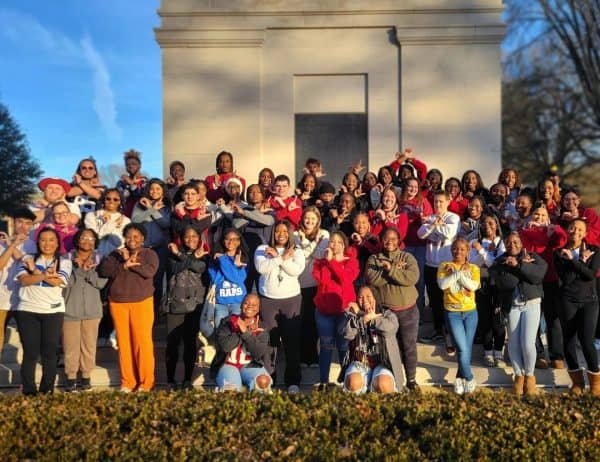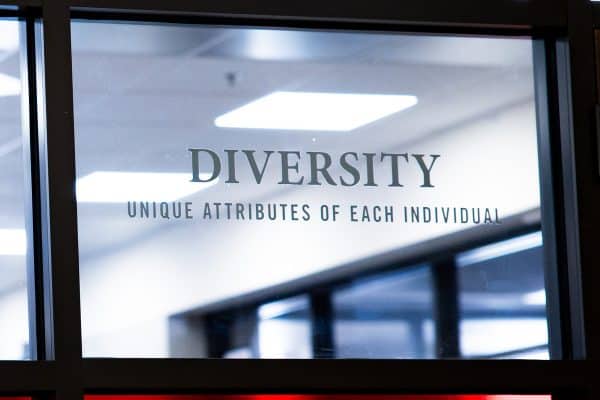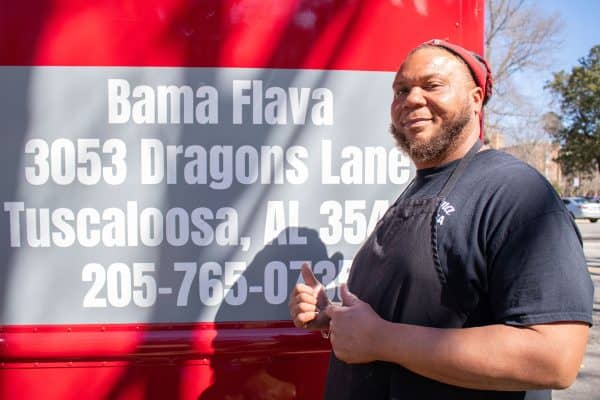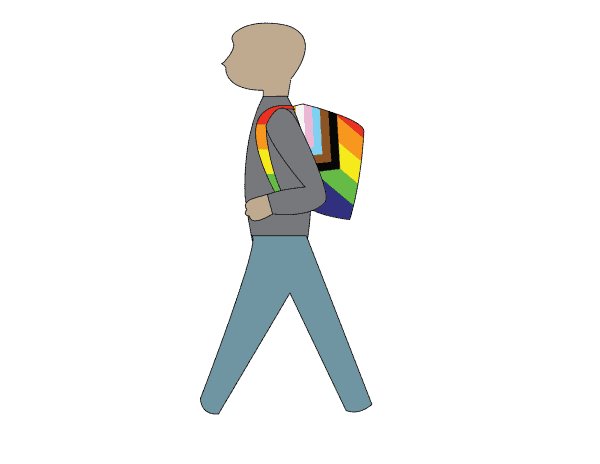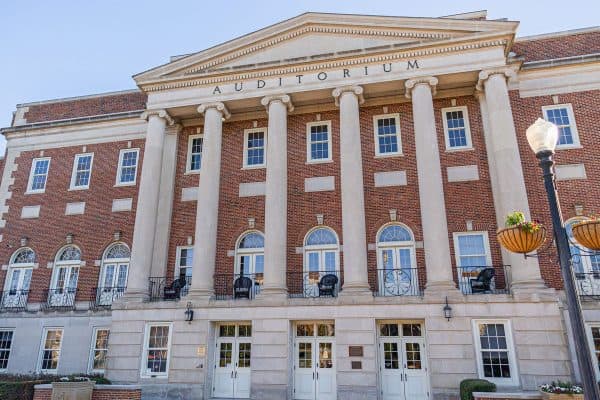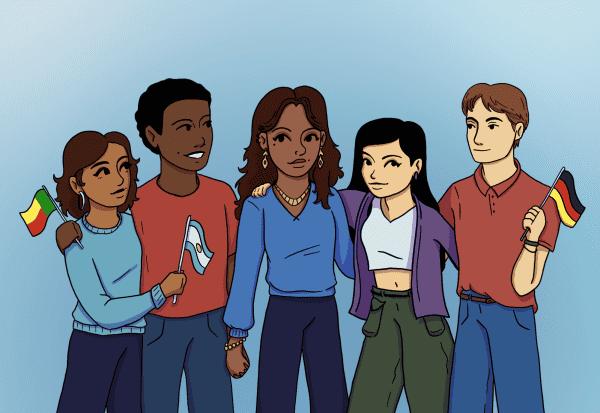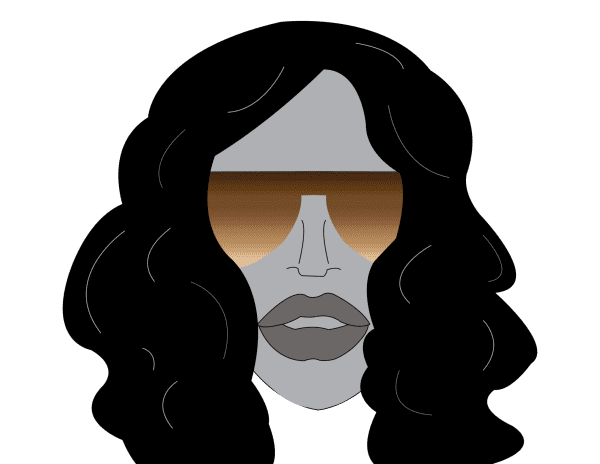“Getting a seat at the table:” Hear the voices of UA’s Black student leaders
October 20, 2022
Editor’s Note: This story was updated on 10/20/2022 to correctly list the name of the Theta Sigma chapter of the Alpha Kappa Alpha sorority.
This fall, The University of Alabama reached a milestone: a record number of 4,344 Black students were enrolled. Despite this growth, however, Black representation on campus remains limited, with most prominent organizations featuring few, if any, Black students among their ranks of leaders.
The Crimson White partnered with 1956 Magazine to shed some light on the impressive work being done by several Black students.
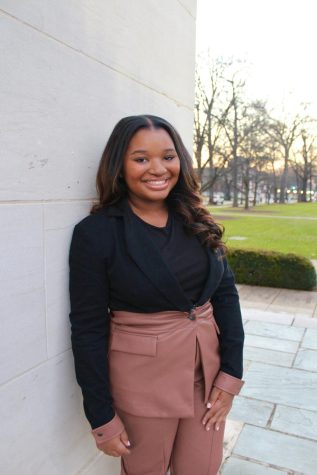
Karina Collins is a sophomore who serves as a Senator for the College of Human Environmental Sciences in the Student Government Association. She is also a member of the Theta Sigma chapter of the Alpha Kappa Alpha Sorority, and a residential advisor at Ridgecrest South residence hall. She is currently studying public health.
Q: What’s been your favorite part about being in the SGA?
A: Honestly, being a voice for students. I really enjoy when people do find out that I am a Senator for the Student Government Association. I really enjoy asking them what they want to see done, because they elected us, we’re in this position, we’re able to get things done for them. So just being a voice for this student body and specifically students within my college.
Q: What motivated you to strive for the position of Senator?
A: I will honestly say my friends and then the lack of African Americans in the Student Government Association. At first, I was pretty nervous about running for the position, but I just kind of thought, ‘OK, we need a voice at the table. I’ll just go ahead and do it.’ And then my friends were also like, ‘I think you should do it.’ So, they really helped me get through it and decide to run for my position.
Q: What accomplishments would you say you’ve made as a Senator?
A: This is my first year being a Senator for the Student Government Association. So recently, I’ve been helping sponsor bills and that’s been something we’ve accomplished. Also, one of the bills I sponsored with Senator Elizabeth Prophet was sort of a ‘Meet Your Senator Day.’ We’re trying to increase transparency and inclusivity on campus, so again, the student body will have more access to us and they’re able to tell us their concerns. So [I] definitely think that was a huge accomplishment, getting that passed in the Senate.
Q: What challenges do you think you faced while you were trying to become a Senator?
A: I honestly just tried getting my voice out there and people knowing who I am, considering I was a freshman. I was new to the campus. Not that many people knew who I was. So yeah, that was the biggest challenge: just trying to put myself out there. I remember when I got to campaign in person and handout buttons, I was so nervous. I was like, “Oh my gosh, what if they throw my button on the ground?” or something like that. So that was the hardest part, trying to get my name out there so people knew who I was and what I was standing for.
Q: How do you think UA students could help both the SGA and your sorority achieve their goals?
A: They could attend our Senate sessions. A lot of students don’t know that they can come to our sessions and voice their opinions. So that would be a great way. If there’s something on the ballot that week that you see on the SGA website, and you’re like, ‘I definitely want to come speak on this,’ come speak. The student body gets 30 minutes. They get to come speak on behalf of what they believe for those 30 minutes within that session. And for my sorority, we have events all the time. So if you see an event and it interests you, we’d love if you came to attend our events on campus.
Q: Yeah. What’s one thing you think UA students should know about the SGA?
A: This year, we really are trying to work on transparency and inclusivity. So just something that they know we are not like isolated from you guys. So just please come talk to us. Please voice your concerns. The Student Government Association is here for the student body. So that would be the main thing I’d want them to know.
Q: What challenges or problems do you think African American students on campus still face?
A: I definitely think it’s hard for us to get a seat at the table. Sort of, like I said earlier, I ran for SGA so we could have a seat at the table. I believe we still face different adversity because at the end of the day, this is a predominately white institution— we are not the majority here. So, it’s just sort of trying to get our voice out there and trying to make sure that people are listening to our concerns, and they understand that this is an issue [and] although we are the minority here, our voices still matter.
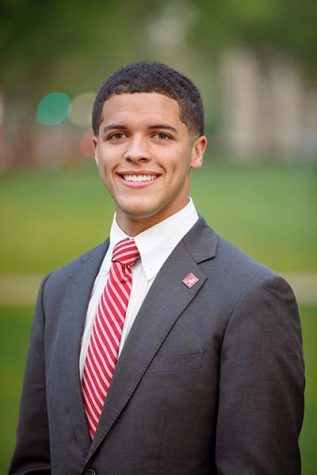
Preston McGee is a senior on track to receive dual degrees in management and political science. In the past, he served as Deputy Chief of Staff under President Jillian Fields of the SGA; currently, he serves as president of the Capstone Men and Women, an ambassador group for prospective students.
Q: Tell me more about your journey through the group to becoming president.
A: So, I pledged Capstone Men and Women the spring of my freshman year. I was blessed to make the group. Over the first two years in the group, I woke up, put my best foot forward every day [and] I tried to be the best not only Capstone man but the best person I could be for every member of the group and every person I came into contact with. And I think over those first two years … I proved that I could be who I was. And ultimately, that led to me being president of the group. I ran unopposed, and I think that the reason why I ran unopposed is that people saw how much effort that I put into the group and how much I cared about the University and that they trusted me to be the … face of the group.
Q: Can you describe the history of the organization to me?
A: Yeah, so Capstone Men and Women started off as an ambassador program for The University of Alabama. Our main purpose is to ensure that all of our guests at the campus received the hospitality that we expect everyone that steps foot on our campus to receive. We started back all the way in 1962. That’s when the University officially adopted us. And since then, we’ve grown, and in 1976 is when we became known as the Capstone Men and Women.
Q: What’s been your favorite part about being in the Capstone Men and Women?
A: My favorite part about being in Capstone is really the people I get to meet. One of the reasons why I came to The University of Alabama was because of how diverse our student body is. We have nearly 60% of our students coming from out of state. And now that I get to be one of the first welcoming faces that they get to meet when they settle into our campus, that’s been the best part, because I’ve always been such an outgoing “people person.”
Q: What motivated you to join Capstone Men and Women?
A: So like I said, I’ve always been one to love to meet new people. And I grew up an hour away from campus [in] Plantersville, Alabama. And I know what great things are in this state, what great things we have to offer. And this is a great, great university; The University of Alabama is definitely the front runner of the state. And I wanted to make sure that people are able to see that not just about UA but about Alabama as a whole. And being an ambassador for UA has … allowed me to show people how great our campus is and what we have to offer them.
Q: What accomplishments have you made in the Capstone?
A: …I’m about to I have given over 300 tours as a personal accomplishment. So, that’s at least 300 faces. But of course, there can be up to 20 faces on each tour. So I’d say that’s … one of my personal accomplishments. But our group has grown some over the past couple of years, [and] we’ve taken on some more responsibility. So … I would say that the accomplishment there has been that we’ve taken on that responsibility and thrived with it. … We had unfortunately to survive COVID. So surviving COVID was another accomplishment. But after COVID, we came back better than ever; this past year, we gave a record number of tours. So the biggest accomplishment that I’ve seen during my time in Capstone is the record number of tours and events that we’ve hosted over the past year.
Q: What challenges did you face getting into the Capstone?
A: Challenges … I would say that there’s very few. … I was very blessed to be become a Capstone Man to be selected to represent the University. Ever since I made the group, I decided that I would put my best foot forward every day, give as many tours as I could, and not just giv[e] a tour just to give a tour, but giv[e] my best on that tour, making sure that every person I interacted with on that tour felt welcomed and they understood my role and understood that how UA can be their potential home for the next four years is a very big decision. Yeah. So I did what I was supposed to do in the group, I went above and beyond every way. We kind of have a motto like the bare minimum is not good enough for the group. And we don’t present to our guests the bare minimum.
Q: What was the process like to get into the Capstone Men and Women.
A: So we have applications every spring, as long as you’re a freshman, and you can be any year, but the minimum requirement is being a freshman, of course, in their spring semester. So we have three different … “tryouts.” So we have three different rounds. The first round is an application. The second round is a first round interview. So everyone who turns in an application gets a first round interview. So that will be you in front of our panel. Yeah. And then from there, we usually have about 300 people apply each year. We’re hoping for more this year. So we’re always welcome to more applicants. But we usually cut that down to around 100. We don’t ever have set numbers. But then we have the second round interview, which is our partner interview round.
Q: So it definitely was not easy for you to get in and get this very low chance [position]?
A: Well, if you look at the numbers, yes, it’s low chance, but I’d say every person that applies to the group has their own chance of getting in. So I would say to anyone, don’t be discouraged by the number aspect of it because all that you need to focus on is putting your best foot forward, because that’s really what’s going to get you on the group, is if you come in there and show your best self and continue to do that every day. … That’s what they’re looking for.
Q: How do you think UA students can help the Capstone Men and Women?
A: I say I think they’re already doing it. UA is in Alabama, Alabama is in the South. Southern hospitality is what we like to protrude from ourselves. So yeah, southern hospitality is what attracts people not only to UA but the South in general, and what we want of UA students is just to continue to support that goal. Whenever someone asks for directions, be nice, which we hear from guests all the time [that] that’s what students do on campus; I truly believe that students are already doing that. Continuing to say ‘Roll Tide,” that’s definitely what keeps our livelihood on campus. So [I] definitely think students are an integral part of our recruiting process, because they are the faces that people see when they step onto campus.
Q: What’s one thing you think UA students should know about Capstone Men and Women?
A: I want students to know that we’re not only there for prospective students, we’re there for all of campus. Because at the end of the day, we are representing our entire campus, no matter what your background is, no matter where you’re coming from. We are here representing UA, and every single student at UA is a part of UA. And that’s what we represent. So we’re not only there to serve guests, we’re not only there to serve people who are here, we’re here to serve everyone. So that’s a freshman, sophomore, junior, senior, whether you’re on the group, know someone on the group, or not. We want people to be able to approach us, ask us questions, and get to know us and let us help you in any way that we can.
Q: And finally, what challenges or problems do you think African American students on campus still face?
A: I think one of the biggest problems that we face is the barriers that we put up for ourselves; we put limits on what we think we can achieve. And UA has come such a long way that everything on this campus is so accessible to students. So a lot of times we get stuck on ‘Oh, this organization is primarily this race, or they’re primarily looking for this type of person.’ You won’t ever know if you don’t ever put yourself out there. So that’s why this past year, I went out to so many different organizations trying to get people to apply because we want everyone to apply if you have an interest in being a counselor, man or woman, we want you to apply. We’re not looking for a specific person, or a specific type of person. Anyone who comes in there and shows us that you have what it takes to put your best foot forward every day that you’re on this campus — that’s what we’re looking for. So I think at the end of the day, the barriers that we place for ourselves are the biggest challenges facing African American students, the limits that we think that are above us when there’s really no limit. The sky’s the limit, so fly for it.
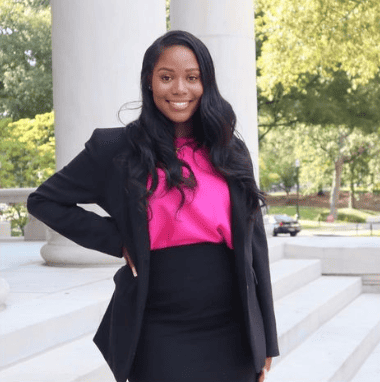
Remie Taylor is currently serving as the president of the Future of Black Law Student Association, which helps students learn and prepare for law school. A senior majoring in political science with a minor in public policy studies, Taylor was previously the organization’s treasurer and director of public relations.
Q: What accomplishments have you made while in your current leadership position?
A: Okay as the President of Future Black Law Student Association, my biggest accomplishment that I have had is just inspiring confidence in undergraduates while navigating the ins and outs of getting into law school. Law school has historically been elitist and it has historically discriminated against and undervalued Black students and minority students. Through the LSAT workshops we provide, we have public speakers and financial aid info sessions, etc. I feel like FBLSA has been able to provide those tools and resources to those students who wouldn’t have them otherwise. Just to navigate that process a little better than doing it on their own.
Q: What challenges did you face in getting to your current leadership position?
A: I think the biggest challenge that I faced getting into my current leadership position would be myself. You know sometimes you doubt yourself and your ability to do certain things. Other than that, I think that was my only challenge because I joined the organization coming into The University of Alabama and then my second year here, I was on E-Board for a position. It was just learning how to not only connect with your peers because you are in a higher leadership position but also just getting comfortable with being more outspoken and being in the forefront and I think that was my biggest challenge myself.
Q: What is one thing you think UA students should know about your organization?
A: I think that students should know just because it’s an organization that says “Future Black Student Association” you can still come to the events to get knowledge about it. I invite the Pre-Law Student Association all time, the Legal Research club all the time, so I just want them to know it just isn’t an organization for Black people. I want them to know that if they have anybody that comes up with a question or anything that concerns the law school process that we are here to help.
Q: How could UA students help your organization achieve its goals and/or be more inclusive?
A: I think the biggest thing that they can do to help us achieve our goals is just being active in the organization. We can bring as many speakers as we want, we can have all the resources that we want but if we don’t have the people because they aren’t being active or reaching out then I think that is a little more difficult. My biggest goal in the organization is to help you navigate that extremely difficult law school application process and to get to that next step and I think the biggest way for me to help you is for you to actually come out and get those resources.
Q: What has been your favorite part about being in this organization?
A: My favorite part about being in the organization is just learning something new every day. I remember when I first came to UA I thought to get into law school you had to be a political science major, history major or English major something like that. Over the years of me being in the organization and meeting guest speakers and just meeting different individuals who have gone through the law application process, you don’t necessarily have to major in this, you don’t necessarily have to have this certain LSAT number because of the holistic review. It’s just so much that you learn each day about the application process that you didn’t know before, so I think that’s what I enjoy most about it and I also enjoy getting to connect with the students and providing them with the resources as well. Because like me, I can come in as a freshman and say “Oh I am majoring in political science” and I ask them “Are you actually passionate about political science? Is that something that you are really interested in” and then they explain how not so much so then I explain to them that you know you don’t need this particular major to go to law school. You can do anything that you are interested in, if you want to be an engineering major you can do that and apply to law school and so I think that learning new stuff everyday about the application process and everything and also being able to help those students and enlighten them has been my favorite part so far.
Q: Briefly describe the history of your organization.
A: So, it was originally founded in 2012 by a few Black students on campus. It was basically meant to serve as a safe place for minority students working to get into law school. It is kind of like the Black Law Student Association which is the national one at every law school around the nation. So, the FBLSA was kind of built on having the experience for pre-law students and having that sense of community where we are all working towards this common goal and we’re developing strategies, we’re figuring out resources to help us get to that. So that is how it started, and it is still going that way now so far after the years. Now we pay for LSAT tutoring and stuff like that, so it has changed a little bit but the main goal and the origin of it was to create a safe space to provide those resources and community for those minority students pursuing law school.
Q: What motivated you to strive for this position?
A: I think what probably motivated me the most was because I worked closely with the previous president. I was on the E-Board but I wasn’t the vice president, I was the treasurer and director of public relations. So I really worked closely with our past president. I just enjoyed figuring out the events. I enjoyed watching them be the advocate so I know I wanted to be that as well and I know that I will be good at it and so far, I have been doing pretty good. That is what really motivated me to strive for the position and to also get out of my comfort zone because before coming to UA, I wasn’t really active in high school and not in any clubs or anything. I just went to school and I went home and that was it and I knew I wanted to do something different and I pushed myself to strive for this position because I knew it would get me out my comfort zone and it is something that I would love to do and just watching the previous president helped.
Q: What challenges or problems do you think African American students on campus still face?
A: I probably think that even though we do have some sort of community, I feel like there is still a way to go to kind of solidify that into advertise that right. So I know when I was a freshman, I didn’t know anything about BSU [the Black Student Association] or anything until my senior year. Right, I am graduating now and I know about the BSU. So I think there needs to be more outreach to Black students to know that they do have a community and I think it’s important that they feel welcomed on campus in any way possible. I think the University could do a better job at that and I think that just making sure that we have those safe spaces is important to kind of mitigate those issues of feeling isolated or lonely because you go in a classroom and it’s one of you and you’re the minority. So I think creating more of a comfortable and kind of safer feeling for them, I think that is an issue we need to face on campus.
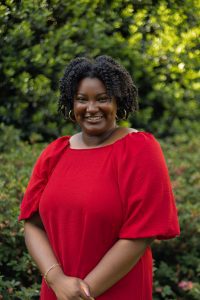
Trinity Hunter is a senior who is a double major in public relations and political science. Hunter is also a writer for Her Campus. Hunter currently serves as the press secretary for the Student Government Association to help spread the news to students across campus.
Q: What accomplishments have you made while in your current leadership position?
A: In my role as Press Secretary for the Student Government Association, I work closely with 111th SGA President Madeline Martin, the Executive Council, and Executive Cabinet to determine communication strategies and tactics.
One of President Martin’s goals this year was to have more coverage of SGA initiatives and programming. With this goal in mind, I have been successful in working with The Crimson White, our student-media newspaper, to disseminate information concerning SGA events. In addition to this, I have been successful in reaching out to WVUA-FM, the student run radio station, UA News, and the Graduate Student Association. For WVUA-FM, I have even been able to attend their Morning Show as a guest.
My focus in my role is to ensure that the correct information is being spread to as many sources as possible. With SGA having the motto of “students serving students,” we cannot do our jobs without as much outreach as possible.
Q: What challenges did you face in getting to your current leadership position?
A: I think one of the biggest challenges came from trying to understand where I stood within the organization. As a Black woman, I have learned from a young age that my work ethic would have to be that much stronger than my counterparts. Thankfully, this drive has helped me propel through the organization since I got to campus, but it also gave me multiple avenues I walk down as I grew within the SGA.
One of the challenges that I struggled with was figuring out how to gain and maintain trust across all areas of campus. I have been blessed to serve on this role, and I am thankful for the confidence of President Martin with filling it. That being said, I know that I have a unique perspective within my leadership role. I don’t know how many Black students may be interested in getting involved with SGA, let alone how many of them may want to serve as press secretary one day.
The biggest challenge of getting to my leadership position, as well as holding it now, is subconsciously knowing that every step I take could influence the experience of those who come after me. I want to make them proud in everything I do.
Q: What is one thing you think UA students should know about your organization?
A: I would love for UA students to know that SGA is here to serve them. I want them to feel comfortable addressing their elected representatives and to deliver as many suggestions for how to make campus better as they can think of. By letting us know how we can fully serve them, students are ensuring that their campus experience will be better than when they came in.
Q: How could UA students help your organization achieve its goals and/or be more inclusive?
A: I think this ties into the previous answer a little bit. While I am a minority, my marginalized status is more visible than other people’s, even with the intersecting identities that I have. I would love more students to feel emboldened to address the SGA with any innovative ideas that they have, as well as honest critiques of how we can be better.
Q: What has been your favorite part about being in this organization?
A: My favorite part has been the programming, as well as the community. Initiatives such as OneUA, Faces of UA, and the DEI Certification Program have been integral to our growth as an organization. In addition, I have had the opportunity to grow up with a bunch of the same people who I served in First Year Council with. From meetings on Tuesday evenings to us entering our senior year, it has been an honor to watch them as they have moved through the university.
Q: Briefly describe the history of your organization.
A: The Student Government Association was founded in 1914, and it was created with the intention of serving as the main source of student advocacy when working with administration. Though our university has grown since then, it is formatted as a mirror to the federal government, with executive, legislative, and judicial branches
Q: What motivated you to strive for this position?
A: I’m a double major in public relations and political science, and I have been trying to finalize post graduate plans. Press Secretary was a perfect mesh of the two majors, and it has given me the opportunity to meet more people at our university. Our media groups, whether it be student or strategic communications, are incredibly important in interacting with every group across UA. I am blessed to be able to apply my education in the classroom to my position with SGA, and the prospect of this was a large contributor to me striving for this position.
Q: What challenges or problems do you think African American students on campus still face?
A: I think one of the largest problems that Black students face on campus is a diluted visibility. While it cannot be disputed that Black people exist at UA, there are still systems set in place that prevent us from having a complete sense of belonging. For example, our Black Faculty and Staff Ambassadors are not paid, yet this is standard practice for multiple other ambassadors.
There must be a concerted effort to recognize that Black students and our concerns go beyond history. Though we are integrated, there is still more work to be done. In order to truly address our challenges, we must add an additional aspect to diversity, equity, and inclusion. We must know that we belong.

